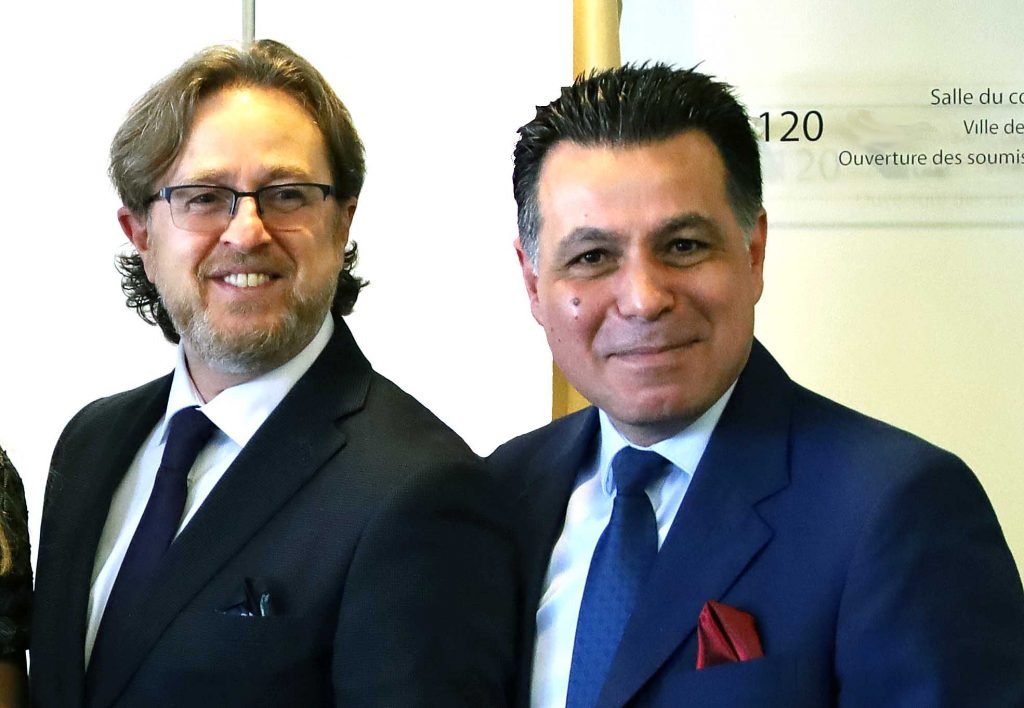Val-des-Arbres city councillor and acting leader of Action Laval Achille Cifelli, along with Chomedey and Saint-François city councillors Aglaia Revelakis and Isabelle Piché, as well as Saint-Bruno and Saint-Vincent-de-Paul city councillors David De Cotis and Paolo Galati, are strongly criticizing Mayor Stéphane Boyer’s budget for 2024.
A call for restraint

They say that far from making responsible choices, “the mayor confirms his focus on big spending at a time when the economic situation calls for restraint.”
“By piling up on major mega projects in the downtown area, the mayor is negating the main role of a municipality: serving its citizens,” the opposition councillors said in a statement.
They say the administration should spend on the maintenance of existing infrastructure before it considers spending large sums on new super-projects.
“The mayor’s priorities are in the wrong place,” said De Cotis. “Real estate projects are stalled because our sewage systems are overflowing, literally. We need to spend $600 million to upgrade them. That’s a priority.”
The Action Laval councillors said it shouldn’t be forgotten that people in Laval are currently going through a housing crisis and that real estate projects are at a standstill because overflows are multiplying.
Can’t get construction permits
They said many real estate developers want to develop but can’t get their permits. Action Laval said it would have preferred the budget to also focus on local services such as sports and cultural infrastructure in the districts, pickleball fields, parks and community centres which are lacking all over the island.
“This year, we will be paying an additional $40 million just to pay down the debt from the mayor’s major projects,” insisted Piché. “The law requires us to replenish reserves, so we will have to pay $10 to $20 million to replenish the reserves depleted by these projects. This year alone, we have $50 to $60 million less to carry out the city’s basic tasks.”
In addition to criticism of what Action Laval referred to as “the uncontrolled growth of the administration,” the party said the administration must consider hiring additional staff for super-projects such as the central library and the aquatic centre. They said this addition results in recurring expenses to be paid for in years to come, straight from the taxpayers’ wallets.
Finance commission suggested

“We are going to propose setting up an all-party commission on municipal finances, like the ones in Montreal and Sherbrooke,” said Cifelli. “We will not let the mayor raise taxes without looking seriously at how to control spending.”
The party maintained that a substantial 4.8 per cent increase in municipal taxes was “the direct result of the mayor’s choices. These choices eliminate a very large number of options for the future. At this rate, Ville de Laval’s debt will rise from $781 million to $1.3 billion, representing an increase of 66 per cent, a radical change for an administration that does not have the public’s mandate to put the city into such debt.”
The councillors also said Mayor Boyer “was not taking any steps to reduce administration expenses. Tax increases are the result of the mayor’s political choices, which make it impossible to freeze taxes for the next few years.”
Responsible choices needed
“He spends money and then asks his boss for a raise to be able to pay off his debts, that is not proper management,” said Revelakis, adding that “the mayor needs to understand that he has to make responsible choices.”
Action Laval maintains that expenses which have contributed to the debt include $180 million for the central library and arts centre for professionals downtown, $100 million for land purchases, an $8 million website overhaul, the construction of a new $60 million municipal courtyard, $28.5 million for an office tower for civil servants at a time when many of them are increasingly working from home, $47 million for another building in the industrial district, and the cost of moving the multicultural library.














